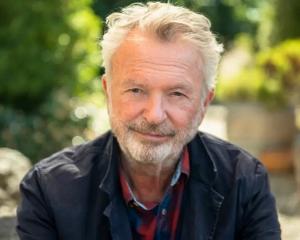
Police confirmed a man in his 60s died while riding the trail. The Otago Daily Times understands he was from Scotland.
A Cromwell man said he was riding on the trail when he came across the family group who were trying to contact emergency services after one of them appeared to have had a medical event.
"The most disturbing thing for me, and I was not making the call personally, was that the emergency services person had no concept of the trail."
However, a Hato Hone St John spokesman said they had the precise location within three minutes of the initial call.
Lake Dunstan Trail follows the Kawarau River from Old Cromwell town to Bannockburn then through the Cromwell Gorge to Clyde for a total of 55km.
A large part of the trail is remote — the 25km section from Clyde Dam to Cornish Point has no alternative route or road access.
It was on that part of the trail Sunday’s events unfolded.
"The poor guy [making the call] was really confused. I intervened and they wasted time before they dispatched the helicopter."
The call-taker kept asking for the nearest road crossing and it was frustrating to keep explaining there was no road access and a helicopter was the only option, the man said.
A St John spokesman said they received a 111 call from the Lake Dunstan Trail at 2.43pm.
"The caller provided an initial approximate location and using our standard 111 GPS system, we were able to locate the caller’s position at 14:46 [2.46pm]."
One minute later, two helicopters and ambulances were sent to respond to the event, they said.
The call-taker would have requested details about road access so ambulances could be assigned as backup, if required, the spokesman said.
Helicopters Otago chief executive Graeme Gale said two Otago Southland rescue helicopters were sent on Sunday and had no difficulty finding the patient.
They were given the co-ordinates for the site and had no issue working out where they were, he said.
"It’s not often we send two helicopters to a scene, but we will send whatever is needed."
Cycle companies operating on the Lake Dunstan Trail recommended riders carry personal locater beacons as cellphone coverage could be patchy. They also assessed riders and would recommend alternatives if they did not think the traveller was able to ride the trail safely.
Bike it Now owner Kathryn Fletcher said people on tours or using their shuttle were assessed for their ability to tackle the trail, which had some demanding sections, and watched a safety video before going on the trail and also had a briefing from staff.
There were distance markers, signs and information boards all along the trail, she said.
However, there was nothing to stop anyone just arriving with a bike and heading off. Only about 15%-20% of riders on the trail booked through a cycle company.
In the past four or five years, people had suffered medical events while on the route, she said.
Trail Journey’s sales manager John Harley said they went through the trail map section by section with riders to ensure they were aware of the demands of the trail.












